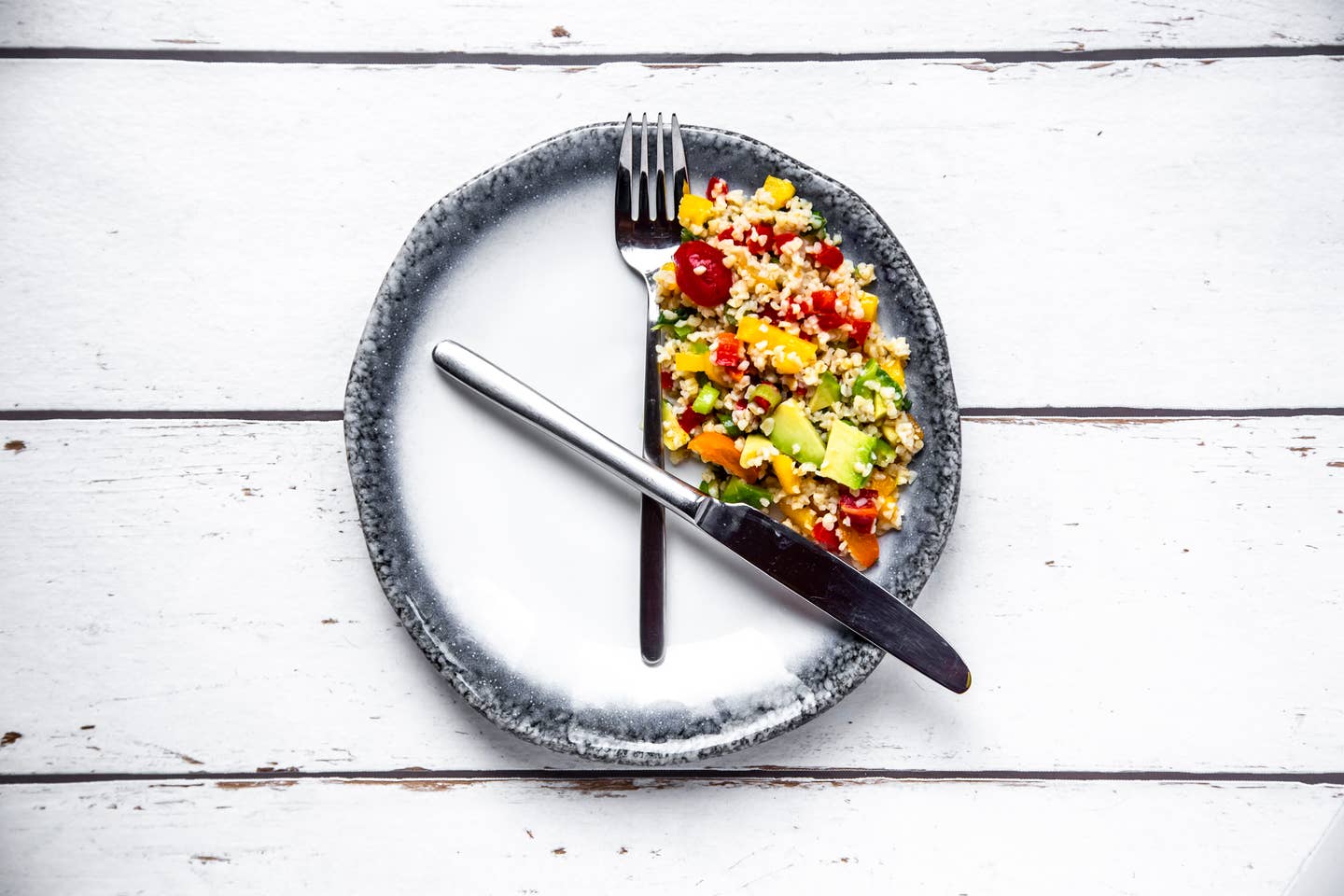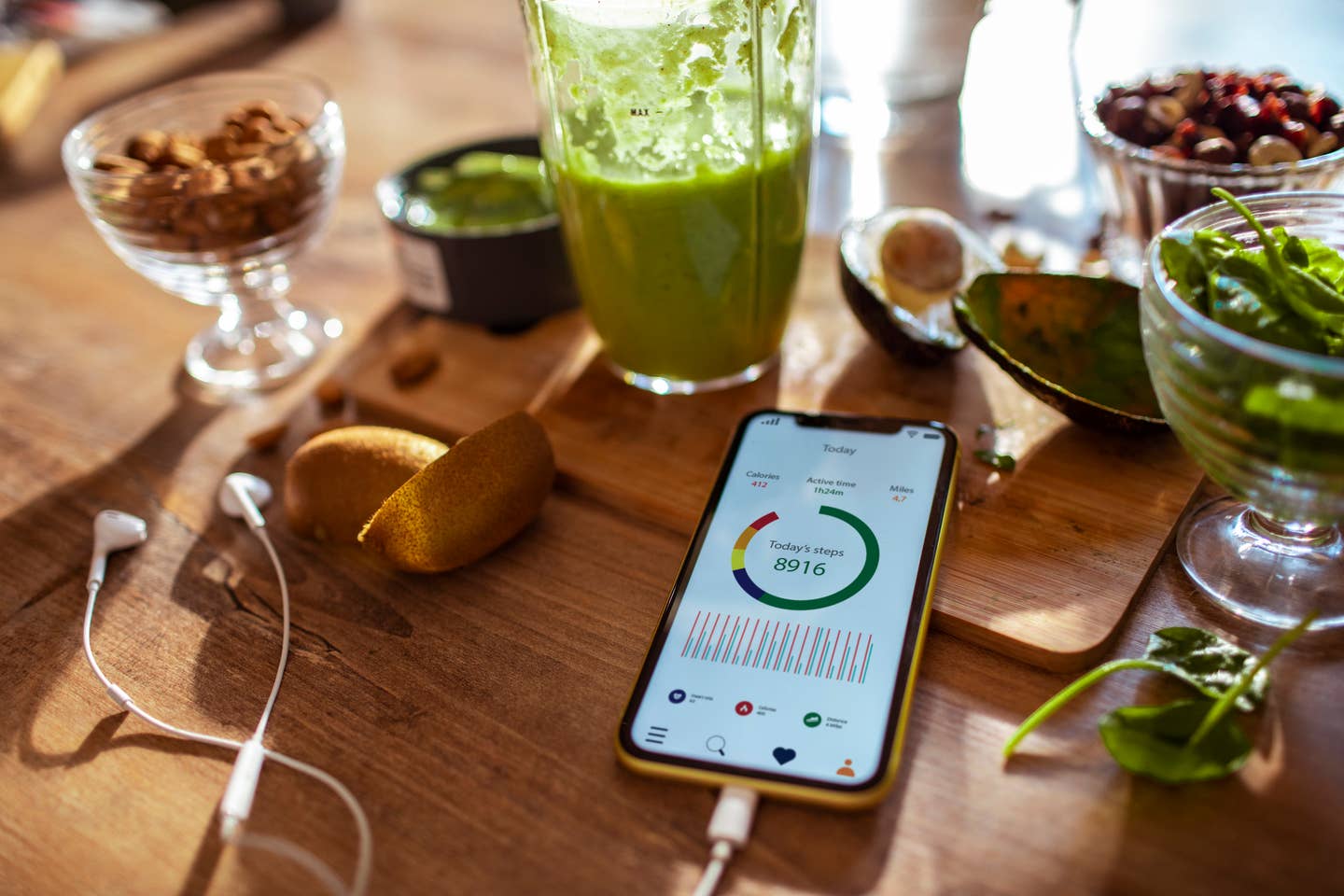
Your Guide to Intermittent Fasting on a Plant-Based Diet
A major media maven emailed me the other day to ask for the name of a nutritionist who could help her suck off 7 pounds—pronto. She has TV appearances to do and needed to look camera-ready in a flash. I told her don't waste your money or your time.
There is a new diet sweeping the nation and it works better than keto, without the controversial emphasis on oils, fats and animal products. It's Intermittent Fasting, and it's based in good science, done by doctors, like Dr. Jason Fung, who has co-authored the book, Life in the Fasting Lane, out this spring (but you can pre-order it now on Amazon.)
I had an extensive interview with Dr. Fung about a week ago, and then I started this regimen—and lost weight almost instantly. It felt like cheating. I ate all the foods I normally like, but in a window of about 8 hours, and fasted for the other 16. And my body shed fat, fast. I had been considering getting "cool" sculpting on my thighs (since no matter how much I work out I have always had stubborn fat pockets on my outer thighs) and just as I was making the appointment, I tried Intermittent Fasting, and low and behold, I lost fat. Okay, not all of it and not exactly where I wanted to but my stomach felt flatter, my pants looser, and although I don't weigh myself, I could estimate that I dropped about 5 pounds in one week. Without changing my diet. I just changed the timing of when I eat. (Which for me is plant-based but Dr. Fung said you can try Intermittent Fasting on any diet, so long as you don't go crazy on processed foods and carbs, which is good advice on any diet.)
Intermittent Fasting Is the Most Popular Diet Right Now.
Dr. Fung explained that he first figured out this was an effective weight-loss tool when he worked with diabetics who were overweight and suffering from kidney failure. Rather than treat the kidneys he decided to backtrack and treat the obesity that was causing the insulin to short circuit. And in every case that the patient complied they lost weight, saw their insulin levels regulate and were able to avoid dialysis. Intermittent Fasting works by lowering the insulin spike, that, when you eat extra calories you are not going to burn off right away, signals to your body to store this excess energy as fat.
Intermittent Fasting is having a major moment, partly because it works and partly because celebrities like Jennifer Aniston, Halle Berry, Reese Witherspoon, and Kourtney Kardashian have talked about how they use it to effectively control their weight. In a quick search, more than 3.2 million people have hashtagged #intermittentfasting on IG, and it was the most searched diet term on Google in 2019, according to the search engine.
One Reason Intermittent Fasting Is So Popular Is That It's Natural.
Fasting for short bursts is as ancient as humankind, Dr. Fung explains. We were not built to eat all the time, snacking and gorging all day long. We were built to find, forage, hunt or grow our meals and eat sporadically. We were also programmed to be sharper and more focused as our hunger increases. This is so our survival is ensured when our brains become even more attuned to our surroundings as hunger signals: Feed me.
If you can push through the initial surge of hunger, you can fast and turn on your body's fat-burning hyper chargers, since your body will do everything it can to feed itself, Dr. Fung explains. If you don't put something in your mouth, your insulin levels flatline, letting your body know: We need some energy here, let's get it out of reservers. It dips into the body's natural storage system to burn fat for fuel. You may even feel slightly euphoric or energized as the adrenaline, cortisol, and norepinephrine (your three "fight or flight" hormones) flood your body and brain to keep your heightened awareness up until you eventually do eat. How long you go is up to you.
Another reason Intermittent Fasting is taking off is that, unlike keto diets, which often get criticized for cutting out healthy carbs such as those from veggies and fruits, you can eat the entire spectrum of healthy foods and still lose weight. In fact, Intermittent Fasting allows you to eat what you want, within a certain window—either 4 or 6 or 8 hours, depending on whether you want to fast for 14, 16, 18 or 20 hours. Dr. Fung admits that at his most extreme, he went five days without eating, other than green tea, water, and coffee, to slim down and shed fat fast after an indulgent holiday.
But the health benefits of IF go well beyond the potential wins of weight loss (like lower blood sugar, blood pressure, lower cholesterol, lower insulin resistance to name a few). There is research to show that IF leads to a reduction in inflammation which is known to be a precursor to disease and illness, and improve glucose regulation. It can also help you stave off stress and slow the free-radical damage that shows up as aging in your cells and even lead to disease over time.
Stars like Jennifer Aniston, Kourtney Kardashian, Hugh Jackman and Lance Bass, Chris Pratt, Kate Walsh, Molly Simms and others have posted about their Intermittent Fasting regimens. All of them look amazing, and now we know why.
Is Intermittent Fasting Right For You?
This question is one only you can answer. We tried it. And while I usually hate being hungry, I got past it easily because I kept hearing Dr. Fung's words in my head: Hunger does not keep going up. It's a momentary thing and then you feel it abate when your body switches on the fat-burning process. You literally "feed" yourself, but it happens internally. He also pointed out that most people have about 200,000 calories stored in their body in the form of fat. You have enough calories to last about two weeks without eating. You are not going to collapse. In fact, you are going to feel better.
That's what I found. After doing it for just two days out of three, I felt lighter, tighter and less puffy and bloated. My jeans floated off my hips for the first time in months, and while I didn't weigh myself before starting my first fast of 16 hours, I felt like I had lost about five pounds by the end of week one. (Which involved two our of three days of fasting, on two cycles.)
Here Is How to Do It.
Don't get overly ambitious all at once. Instead, try different windows for eating (such as ten hours on, 14 hours off) and find the one that works for you. We suggest that you start with the most popular window: Eat for 8 hours and fast for 16. So if you have dinner at 7 p.m. and finish by 8 p.m. (including wine) then fast until noon or slightly after the next day. Then you get the next eight hours to eat. While you can eat what you want, the body will be more likely to not store calories as fat if you stay away from the carbs. Other than that this diet works for plant-based and omnivores alike. Of course, the healthier you eat the better your body will feel, and the healthier you will be.
If you want to ramp-up to fasting for longer you basically have two choices: Eat breakfast or a mid-day meal and then fast through dinner until the next morning, or eat dinner and then hold off until the next evening. These are personal decisions and most people find that it's social to dine with their loved ones, but if you are a dinner skipper, or enjoy lunch with colleagues or have work functions during the day that require you to eat that works as well.
Make friends with your hunger and tell yourself this is your body's way of dialogue over where the next energy source is coming from. If from food then eat, If from fasting, tell yourself this is just a signal that it's switching over to burning fat.
Dr. Fung recommends fasting helpers like green tea or coffee with the antioxidants that help speed up metabolism. And if you want to break your fast, then do so with a snack that is lower in carbs and has fiber, a little bit of fat and protein (almond butter on a celery stick is a great choice) so that your insulin levels don't spike too high and come right back down again. If you snack, don't beat yourself up, you can still be effective with small snacks that help you stay on track.
The most important thing about fasting is to stay hydrated and drink plenty of water, tea, coffee, and other non-calorie fluids so that you don't mistake thirst and hunger. You need to drink. Our recommendation is that you follow the routine of two days of fasting a week, three at the most, alternating normal days with Intermittent Fasting days. Enjoy the food you eat and appreciate your amazing body for working with you on the important job of being healthy, active and strong.
More From The Beet






